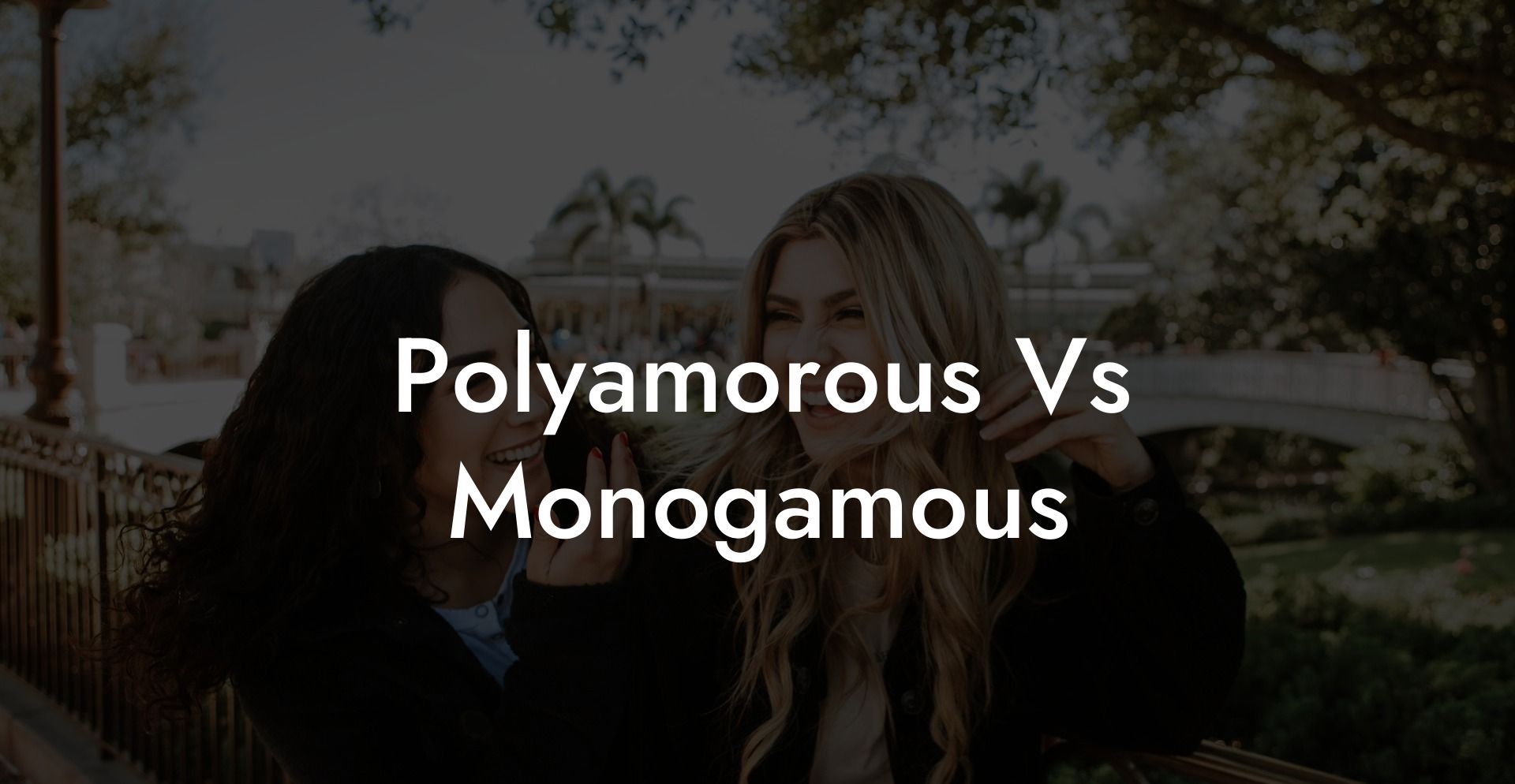In the ever-evolving world of relationships, more and more people are exploring different ways to cultivate love and connection. Two such approaches that stand out are monogamy and polyamory. But how do these relationship styles differ, and what are the advantages and challenges of each? In this comprehensive guide, we will delve into the intricacies of polyamorous and monogamous relationships to help you better understand and decide which path might be best for you.
Polyamorous Vs Monogamous Table of Contents
What is Polyamory?
Polyamory is a form of non-monogamous relationship where an individual can have multiple romantic and sexual partners simultaneously with the knowledge and consent of all parties involved. It is essential to establish open communication and clear boundaries to navigate the complexities of these relationships. Some common forms of polyamorous relationships include:
- Triads: a relationship between three people, where A, B, and C are all involved with each other
- Quads: a relationship between four people, usually in the form of two couples who are intertwined
- Hierarchical polyamory: where individuals have a primary partner and secondary partners, with the primary relationship being the most essential and prioritized
- Non-hierarchical polyamory: where relationships are not ranked, and all partners are treated with equal importance
What is Monogamy?
Monogamy refers to the practice of having a single romantic and sexual partner at a time. It is the most well-known and socially accepted relationship style globally, often encouraged by cultural and religious norms. Commitment, exclusivity, and the promise of fidelity are key components of monogamous relationships.
Advantages and Challenges of Polyamory
Advantages:
- Greater opportunity for emotional, sexual, and intellectual exploration with different partners
- Increased support network and resources in the form of multiple partners
- Encourages open communication, negotiation, and boundary-setting
- Can satisfy different needs and desires that a single partner may not fulfill
Challenges:
- Potential for jealousy, insecurity, and emotional turmoil
- Increased risk of misunderstandings and miscommunication
- Logistical difficulties in managing multiple relationships
- Social stigma and lack of understanding from others
Advantages and Challenges of Monogamy
Advantages:
- Simplified emotional, logistical, and financial aspects of a relationship
- Greater cultural and social acceptance
- Can enhance the intimacy and trust between partners
- Potential for a clearer path to life planning, such as living arrangements and family decisions
Challenges:
- Potential for unmet needs and desires from a single partner
- Increased risk of codependency or reliance on one person for everything
- Less opportunity for personal growth and exploration through different relationships
- Pressure to conform to societal expectations of a monogamous relationship
Polyamorous Vs Monogamous Example:
Joanne has been in a monogamous marriage with Alex for ten years and lately has experienced unfulfilled desires and interests. After openly discussing their feelings, they decide to explore polyamory. They set boundaries, rules, and expectations for their future relationships and embark on this new journey together. Joanne meets Sarah, who she forms a deep emotional connection with. Alex also starts dating James, who shares his love for hiking and outdoor adventures. As a result, Joanne and Alex's marriage is strengthened, and they find balance in satisfying their individual needs while maintaining their primary relationship.
Understanding the complexities of polyamorous and monogamous relationships can help us make informed decisions about the type of commitment that best suits our individual desires and emotional well-being. Whether you choose to walk the path of exclusivity or embrace the world of multiple partnerships, what matters most is the honesty, respect, and love shared with those we choose to build connections. If you found this post insightful, please share it with others and explore more relationship guides on The Monogamy Experiment.













